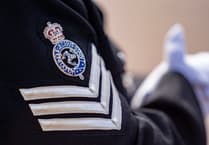‘I’m going to be brutally honest’ Claire McColgan tells me. She’s the Director of Culture for Liverpool and Deputy Chair of the UK City of Culture panel; she’s also wearing a spectacular brown cord suit.
‘Please do,’ I insist.
‘I work in a building that overlooks the Liverpool Ferry Terminal, and I have seen the ferry come and go twice a day, every day, for 20 years, and I never got on it. It took Deborah (Heather CEO of Visit Isle of Man) to come over to talk to me about learning from Liverpool in terms of progression around tourism, which resulted in me coming over to the Isle of Man. I came for a weekend and was blown away. I can't believe that I'd never been before, because it's beautiful and it's like the Lake District without the crowds.’
Hers is a success story that Deborah (Visit IOM) is hoping Claire can help recreate on the Isle of Man through the strong relationship between the city and the island.
And if anyone can help, Claire is the woman.
With a background in community arts and a degree from John Moore University, Claire has been a huge part of Liverpool’s transformation from a rough, run-down northern city into the electric, bustling hub of culture it is today. She had a hand in the bid (and the win) for Liverpool as European Capital of Culture, was part of the team that worked with scientists on how best to open up events during COVID for the whole of Europe, she also helped put on the Netball World Cup back in 2019 and, more recently, was behind the organisation of Liverpool hosting Eurovision for Ukraine—quite a resume. Turning the spotlight to the island, I asked what Claire thought of her visit.
‘There are so many brilliant things here, and once I’d been, I returned again and again. It's just gorgeous, with the sea and the gentleness of the place. And you’re the only whole nation Biosphere in the world, which is extraordinary. This is what excites me about this relationship between the isle and Liverpool.’
The phrase ‘there’s nothing to do here’ has been bandied about for years, and yes, we might not have London’s West End or Manchester’s hipster scene, but what we do have here is a unique form of tourism that shouldn’t be viewed as inferior to the bright lights of the UK’s big cities.
I asked Claire what sort of tourism the island should be targeting. 'People don't come here on hens and stags anymore. But you've got this incredible opportunity to bring tourists who are really interested in the environment and the coast. There is so much opportunity here, masses. What I find interesting in its relationship with Liverpool is that you've got this bustling city 20 minutes away by plane or a few hours by boat, and then on arrival, you've got the peace of here. So, imagine how we could work together on American tourists and with Ireland too; the potential is huge.’
The Isle of Man’s whole nation Biosphere status—its gentleness in complete contrast to its main tourist attraction and the TT—is something Claire would target.
‘Biennials are a huge tourist attraction, and I do advise on a Biennial Biosphere attraction, so I’d start with that. And I’d continue to look at the other extreme—cruises—and how best to link Liverpool, Dublin, or Belfast, because they're your day visitors who spend a lot of money.’
They aren’t the only focus points though; a huge aspect of people visiting is accessibility to the island, which was part of the reason Claire stayed away for so long.
‘I would much rather come by sea than by air, but it's quite expensive. I think making that easier, for me, would be a priority, because it's not just one way, is it? You're not just taking people out of the Isle of Man over to Liverpool. You want people from Liverpool to say, Alright, what should we do tonight? Let's get on a boat to the Isle of Man, stay over, and come back on Monday. You want that sort of ease and accessibility. And I think that is something we need to look at.’




